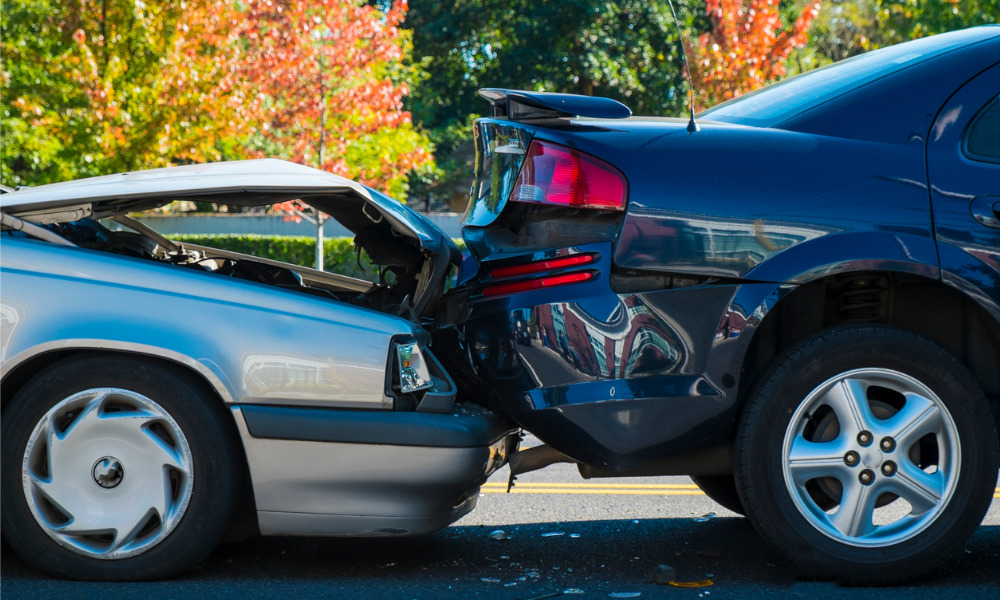Trial court failed to assess evidence linking car accident and victim's mental health issues

Proof of a causal link between an accident and injuries sustained must be properly assessed first in order to determine the proper amount of damages in a personal injury action, the British Columbia Court of Appeal has ruled.
In McPhail v. Ross, 2022 BCCA 122, Cory McPhail was a student in a master’s program at the University of Columbia. He was active in cycling, swimming, skiing, and triathlon training. In December 2012, he was involved in a two-car motor vehicle collision which left him with a limited range of motion in his neck and back. He was also provisionally diagnosed with post-traumatic stress disorder (PTSD).
The driver of the other vehicle admitted responsibility for the collision. The trial judge awarded McPhail $35,000 in non-pecuniary damages, together with special damages in the amount of $2,475. No award for loss of earning capacity or for cost of future care was granted. McPhail contested the award because it was much lower than what he was seeking.
The trial judge had observed that evidence pointed to McPhail’s relatively quick return to strenuous physical training and competitive activity in the first few months following the accident. By January 2013, he had begun to swim again, play volleyball, and complete an eight-kilometre run. He also participated in a 122-kilometre bicycle race in September of the same year.
However, McPhail maintained during the trial that he had continued to suffer from debilitating pain because of his injuries from the accident. Aside from his general surgeon, McPhail did not call any independent witnesses who might be able to provide details of his pre- and post-accident situations.
The trial judge said that a causal link between the accident and the injuries sustained must first be established, but McPhail failed to show credible and reliable evidence of his post-accident losses. As a result, she could not grant a large sum for the damages award.
McPhail brought the matter to the Court of Appeal. He argued that he had ongoing psychiatric problems and a psychiatrist diagnosed him with an “unspecified trauma- and stressor-related disorder.” He further asserted that the trial judge had misapprehended the evidence of the psychiatrist.
The Court of Appeal agreed with McPhail, finding that the trial judge had indeed misunderstood the evidence of the psychiatrist. The court was satisfied that the psychiatrist was able to draw a causal link between McPhail’s psychiatric diagnosis of “unspecified trauma and stressor-related disorder” and the accident.
The court found that the trial judge misconstrued that no causal link was established and she rejected McPhail’s claim outright. The court said that McPhail was entitled to have his psychological injury properly assessed first because, if the psychiatrist’s evidence was accepted, the award of non-pecuniary damages should be increased in recognition of the additional harm caused by the accident. The court ultimately returned the case to the trial judge to allow her to properly deal with the psychiatric evidence.










